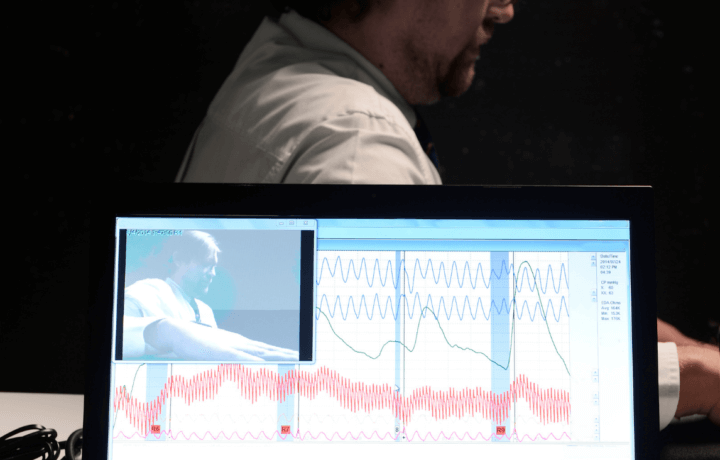This past week was all about polygraph examinations at ClearanceJobs, because it can be an intimidating process, particularly if it’s your first time at the wires.
One subscriber to the ClearanceJobsBlog had some concerns about foreign contacts and drug use that could come up when the polygraph is administered:
“I will be completing my first polygraph soon and have a couple of questions for those who have been through it. Some background: I have an active TS and am currently working as an investigator, so I am very familiar with the various forms and procedures. This poly is part of the hiring process for a potential new job. I will be doing both the lifestyle and the CT poly. I will obviously answer everything truthfully as I have nothing to hide.
Here’s what I’m wondering about regarding the lifestyle poly: From what I gather, the questions are based off of the SF86. Is that true?
My only “issues” on the form are: foreign contacts (one friend from London, a great aunt in Switzerland, and a cousin in Cayman) and Marijuana use in 2016 (one time with no buying or selling).
However, when I was in high school, I was a regular user of marijuana. I also occasionally took ecstasy. I was under 18 and it was outside of the time frame for the SF86 so I didn’t list or discuss it.
Should I expect them to ask about use before I was 18? Or frame it as “have you ever”?
Again, I plan to be totally honest. I just want to know what to expect. My teenage drug use was mainly inspired by a hugely traumatic event in my life when my mother nearly died. I mainly view this as mitigating/explanatory information, but I’m worried it might be interpreted as a risk that stress would cause me to use drugs. (Which is not the case at all. I was a stupid teenager back then.) Any suggestions as to whether that would be positive or negative to say, should it come up?”
If this individual completed their SF-86 thoroughly and honestly, they should continue their honest habits and relax. The purpose of the polygraph is typically to find issues that weren’t reported on the SF-86 – not to discover issues that didn’t need to be.
TYPES OF polygraph EXAMS
Polygraph screening exams for security clearance determinations include two different types of exams—Counterintelligence (CI) and Lifestyle. The DoD CI exam questions cover espionage, sabotage, terrorist activities, deliberate damage of U.S. Government Information Systems, compromising classified information, and secret contact with a foreign national or representative.
The DoD Lifestyle exam questions cover involvement in a serious crime, personal involvement with illegal drugs during the last seven years, and intentional falsification of the security forms.
You will be asked to verify information you provided on your SF-86. The answers you give should be the same answers that you give during the test. If the investigation turned up any possible issues, they would probably ask questions about that, too.
The primary goal of the polygraph is to uncover previously undisclosed information – and it is typically very good at doing so.
Thomas P. Mauriello, US DoD Chief, Polygraph, recommends the following if you are scheduled for a polygraph exam:
- Don’t ask anyone who has taken a polygraph what theirs was like.
- Don’t spend time soul searching your life thinking of things that may be asked during the test.
- Don’t be influenced by any anti-polygraph websites.
- Don’t anticipate what questions will be asked.
- Don’t be late for your scheduled interview time.
- Don’t believe anyone who tells you that sexual related behavior is a standard polygraph question.
- Get a good night sleep the night before your test.
- Maintain your normal routine prior to test (i.e. drink coffee, eat breakfast, etc.).
- Take your prescribed medications as directed by your physician.
There shouldn’t be any trick questions and they aren’t looking for a “gotcha” moment. So be truthful.
Don’t overthink, don’t stress, and you will be fine. Keep in mind that an inconclusive polygraph won’t demolish your career – just delay you in obtaining a job requiring a polygraph.



